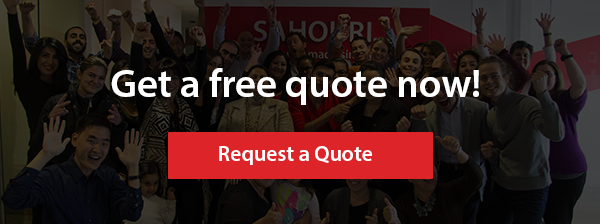Insurance is all the same, right? It doesn’t matter where you buy it. But, here’s the thing - where you buy it determines your future with that policy.
You buy a house, you get a homeowner’s policy. You obviously want one at the best price, with the right coverages, and a great agent who is always there when you need help.
Direct vs. independent insurance agents sounds pretty simple. But is it?
Your entire experience is going to be determined by the type of insurance agent you purchase your policy through.
Let’s break it down into two categories: direct and independent insurance agents.
What you will learn:
- What is a direct agent?
- What policies do direct agents provide?
- What premiums should you expect with a direct agent?
- What is an independent agent?
- What polices do independent agents provide?
- What premiums should you expect with an independent agent?
What is a "Direct Agent"?
Direct agents, otherwise known as captive agents, are the everyday guys with the little gecko and the catchy jingle. They are a jack of all trades, insuring auto, home, life & disability. You name it, they sell it. You think to yourself, “That’s awesome. This one guy can make everything happen, a one stop shop. I won’t have to worry about a thing.” You know what they say about a jack of all trades, they're a master of none. Let’s just say captive agents are not mastering anyone’s problems.
Captive agents make their services sound helpful and easy through one simple interaction. You give them some information, and they come back with a price. Easy as pie. The part they never seem to mention is that when you get involved with a captive agent, they write the policy on their terms, not yours.
Policies with a Direct Agent.
A great majority of captive agents tend to suggest coverages that offer them more pay out, rather than focus on the needs of the client. These agents are paid a percentage of the premium, so the higher the cost of the policy, the more they get paid. Or the captive will suggest a coverage that is far from enough, because they know they can easily win you over with the cheapest policy on the market. The less time they spend worrying about one case, the more time they can focus on finding their next.
Premiums with a Direct Agent.
Well, they vary. They are based on the value of what you're insuring, your loss history, and the percentage commission for the agent or company. This means that captive agents essentially dictate your premium.
For instance, when insurance carriers experience a high volume of claims, they are forced to find a way to make up revenue. They often solve this dilemma by raising the premiums of current clients rather than restructuring organizational dysfunction. Just doesn’t seem fair, right?
What is an "Independent Agent"?
An independent agent is an agent who partners with many insurance carriers. Think about it. One agent, countless options. First thoughts hearing that: holy cannoli! That sounds complicated, like a lot of work, and like it takes for-ev-er. The reality is an independent agent is the best option if you are looking for coverages customized for you at the best price available. Independent agents are advisors, not salesmen.
Policies with an Independent Agent.
Independent agents put you in the driver’s seat. Every carrier has pros and cons. One might be stronger with homeowner’s coverage; another specializes in auto coverage. Or perhaps you’re looking for a niche market not readily available? Let’s take your Beanie Babies collection, for example. The average captive agent wouldn’t know where to begin in covering this exposure and may not have the resources to do so properly. This is where the advice of the independent agent comes in handy. They are more familiar with the insurance carriers’ customer service, coverage, and history. They are your guide to make sure your Beanie Babies are protected in the event of a disaster (because we all know those will be worth something again in a few years…right?).
Premiums with an Independent Agent.
Independent agents work for you, not the insurance carrier. Unless a agent has a pre-negotiated program, they have no control over your premium prices. While they will always have a good relationship with carriers to negotiate price, they will never be able to determine price themselves. Keeping this in mind, if there is a premium increase, the independent agent will ask why. On average, a 3-5% annual increase in premium is standard for most companies and is usually equated to fees in managing your policy (paperwork, admin work, etc.) and the cost of inflation. Anything above this standard increase gets a more in-depth review.
Let’s take another look at those captive agents. Let’s say you got your annual bill and your premium has doubled. That’s quite a change in numbers. You glance over your paperwork and notice that the carrier is now claiming your property value has doubled, so your premium doubles. But wait, your property value didn’t double. So why are they claiming it has? As previously mentioned, insurance carriers are always seeking new revenue and current clients are the easiest targets. With a captive agent, you’re either stuck in this situation, or you’re left to shop around a large and confusing market by yourself. An independent agent would have seen this situation and proactively turned to other markets to find you a better solution
What Does it All Mean?
Not all agents are made the same. Captive agents process you like paperwork. Independent agents offer you guidance and find an ideal solution that best fits your needs. Whatever you choose, make sure it’s the right option for you!




